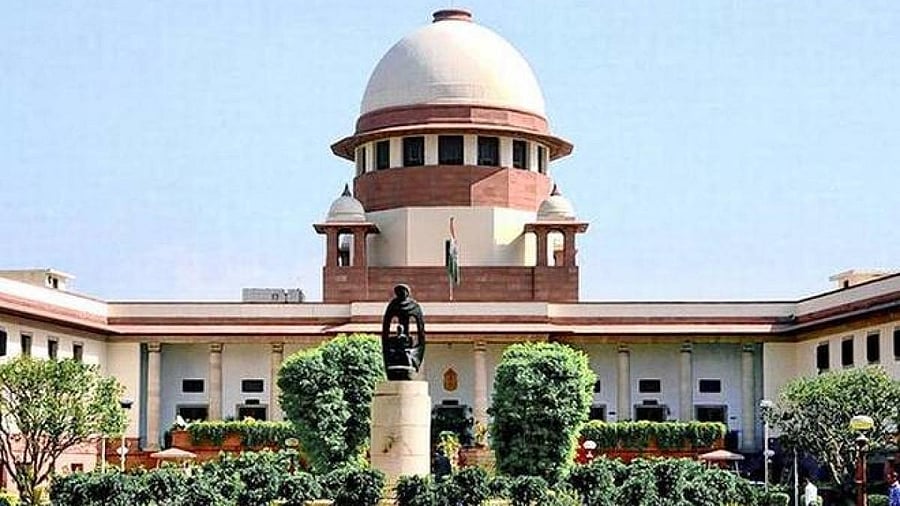
The Supreme Court of India
Credit: PTI File Photo
New Delhi: The Supreme Court on Tuesday said that it is the obligation of the State to consider the case of every eligible convict for remission, even when there is no application for it, in terms of its policy.
The court also directed all states to come up with a policy in this regard within two months.
In its order in suo motu matter 'In Re: Policy Strategy for Bail', a bench of Justices Abhay S Oka and Ujjal Bhuyan said, "The power under Section 432(1) of the CrPC must be exercised in a fair and reasonable manner. Therefore, whenever there is a policy for consideration of cases for permanent remission, it becomes an obligation of the State to consider cases of every eligible convict under the policy."
If a contention is raised that relief will be granted only to those who apply as per policy, it will amount to saying that even if convicts are eligible for consideration in terms of state policy, their cases will not be considered in terms of the policy, the court felt.
"Such conduct on the part of the States will be discriminatory and arbitrary and amount to a violation of Article 14 of the Constitution," the bench said.
The court said in order to ensure that such a power is not exercised in an arbitrary manner, all states that do not have an exhaustive policy on this aspect must come up with an exhaustive policy within two months.
It can be either a separate policy or it can be incorporated into the prison manuals, the bench said.
The court also stressed, "The power to grant premature release must be exercised in a fair and reasonable manner. It affects the convict’s liberty guaranteed under Article 21 of the Constitution."
Therefore, it said, the requirement of recording reasons either for granting or rejecting permanent remission will have to be read into the provisions of Section 432 of the CrPC and Section 473 of the BNSS. Principles of natural justice must be read into the provisions of Section 432 of the CrPC, the bench said.
The court also directed an order passed by the appropriate government of either granting or rejecting the plea for remission must be communicated to the convict.
"If the prayer is refused, he must be informed that he has a right to challenge the order. A copy of the order rejecting the prayer must be immediately provided to the Secretary of the District Legal Services Authority so that legal aid can be offered to the prisoner to challenge the order," the bench said.
The court also emphasised that the appropriate government has the power to incorporate suitable conditions in an order granting permanent remission. The conditions must aim at ensuring that the criminal tendencies, if any, of the convict remain in check and that the convict rehabilitates himself in society.
"The conditions should not be so oppressive or stringent that the convict is not able to take advantage of the order granting permanent remission. The conditions cannot be vague and should be capable of being performed," it said.
The court also said the Standard Operating Procedure issued by the National Legal Services Authority (NALSA) on the subject of premature release is very exhaustive and needs to be implemented in its true letter and spirit.
It also said when the Presiding officer's (trial court judge) opinion is sought as per Sub Sections (2) of Section 432 of the CrPC and Section 473 of the BNS, he or she must submit the opinion at the earliest considering the fact that the issue of liberty of the convict is involved.
The court noted the provisions for premature release have been incorporated in prison manuals of various states. In fact, in the Model Prison Manual, it is provided that the superintendent in-charge of a prison has to initiate a case of a prisoner for grant of premature release. Similarly, in the prison manuals of the states of Goa, Nagaland, Mizoram, Tripura, Himachal Pradesh, Haryana, Jharkhand, NCT of Delhi, Odisha, and Uttarakhand, there is a provision that requires superintendents of prisons to initiate proceedings for grant of permanent remission.
